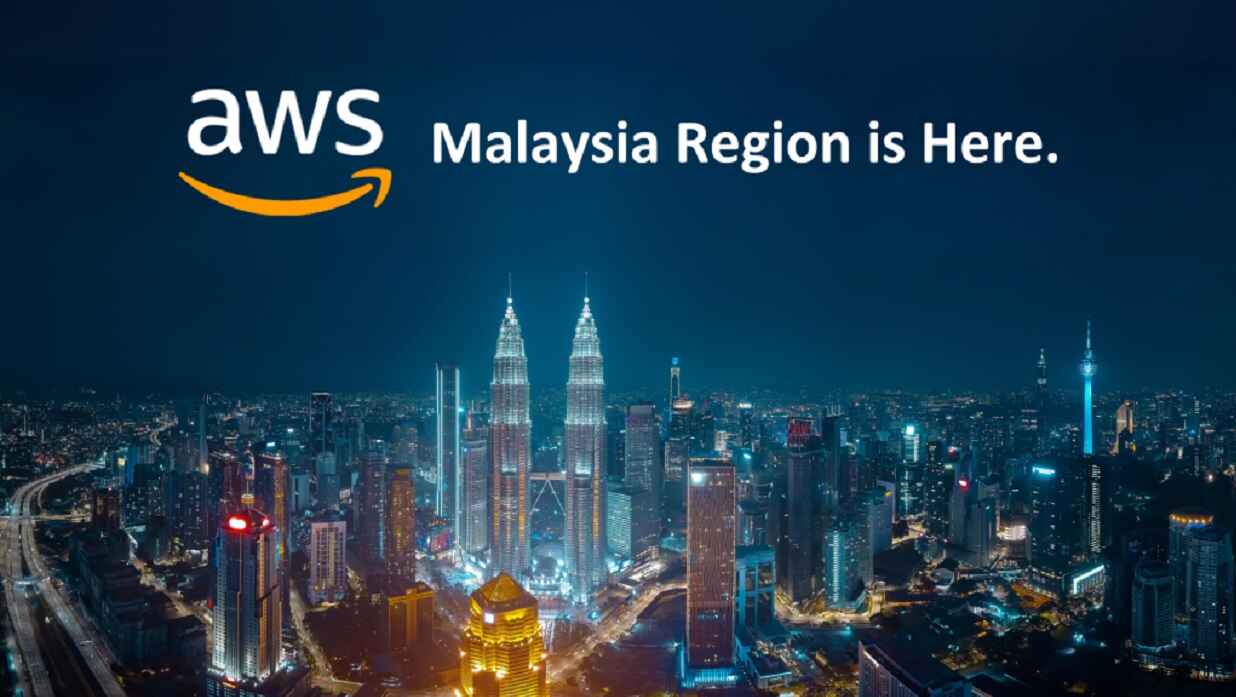Amazon Web Services (AWS), a subsidiary of Amazon.com, Inc., has officially launched its AWS Asia Pacific (Malaysia) Region, marking a significant milestone in the nation’s digital landscape. The launch is part of AWS’s long-term commitment to Malaysia, with plans to invest approximately $6.2 billion (MYR 29.2 billion) through 2038. This massive investment is set to drive digital innovation, enhance cloud infrastructure, and support Malaysia’s vision to become a leading manufacturing and services hub in Asia.
The establishment of AWS data centers in Malaysia is projected to add approximately $12.1 billion (MYR 57.3 billion) to the country’s Gross Domestic Product (GDP) by 2038, while supporting an average of more than 3,500 full-time jobs annually. These jobs will span various sectors, including construction, engineering, telecommunications, and facility maintenance, thus contributing to the broader economy.

Driving Digital Transformation Across Sectors
The AWS Asia Pacific (Malaysia) Region will provide Malaysian enterprises, government entities, educational institutions, and non-profits with enhanced access to advanced cloud technologies. Tengku Zafrul, Minister of Investment, Trade, and Industry, emphasized that this launch aligns with Malaysia’s New Industrial Master Plan 2030, which aims to foster a highly skilled, innovative, and sustainable economy. “This milestone is a significant step towards fulfilling the vision of Malaysia’s New Industrial Master Plan 2030 to build a highly skilled, innovative, prosperous, inclusive, and sustainable economy.” said Zafrul.
AWS’s extensive cloud infrastructure will enable businesses of all sizes to deploy advanced applications and leverage emerging technologies such as Artificial Intelligence (AI) and Machine Learning (ML). Prasad Kalyanaraman, AWS’s Vice President of Infrastructure Services, noted, “Malaysia’s rapidly growing digital economy requires secure, resilient, and sustainable cloud infrastructure. AWS is proud to support Malaysia’s digital transformation and help accelerate its role as a regional hub for AI.”

Broad Adoption Among Malaysian Enterprises
The AWS Asia Pacific (Malaysia) Region has been met with enthusiasm by various sectors in Malaysia. Leading Malaysian companies such as PETRONAS, CelcomDigi, and GXBank have already integrated AWS services into their operations. PETRONAS, a global energy provider, uses AWS for AI, IoT, and advanced analytics, contributing to Malaysia’s leadership in digital innovation within the energy sector. CelcomDigi, a major telecommunications provider, is leveraging AWS’s AI services to enhance customer experiences and drive operational efficiencies.
Similarly, GXBank, Malaysia’s first digital bank, utilized AWS to launch its services within 16 months, serving over 750,000 customers in just eight months. Pei-Si Lai, CEO of GXBank, expressed excitement about the AWS Region in Malaysia, highlighting its potential to provide scalable and secure digital infrastructure to Malaysian businesses and entrepreneurs.

Commitment to Sustainability and Workforce Development
AWS’s launch in Malaysia also underscores its commitment to sustainability and workforce development. The company is dedicated to reaching net-zero carbon across its global operations by 2040, with a focus on renewable energy and water positivity. In 2023, Amazon met its goal to match all electricity consumption with 100% renewable energy, and the new AWS region in Malaysia will benefit from these sustainability efforts.
Additionally, AWS continues to invest in upskilling Malaysia’s workforce. Since 2017, over 100,000 individuals have been trained in cloud skills through various AWS programs. The introduction of Program AKAR, powered by AWS re/Start, aims to bridge the skills gap in Malaysia’s digital economy, further enhancing the country’s digital capabilities.
The launch of the AWS Asia Pacific (Malaysia) Region represents a significant leap forward for Malaysia’s digital transformation, positioning the nation as a key player in the Asia Pacific’s rapidly evolving digital economy.











